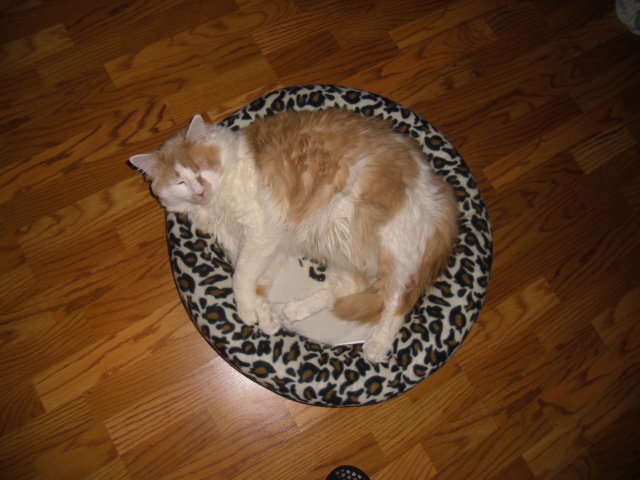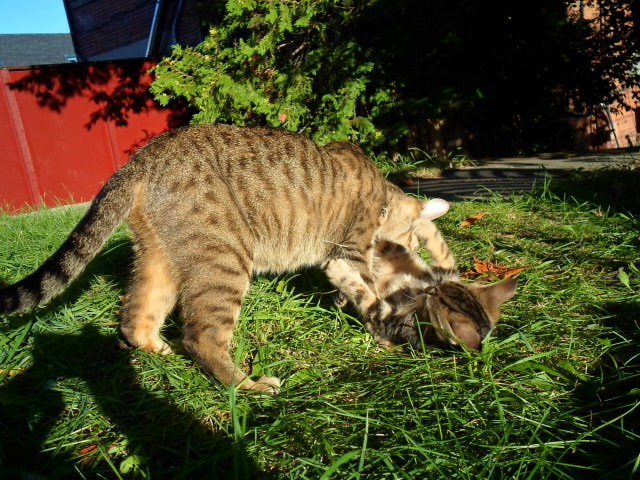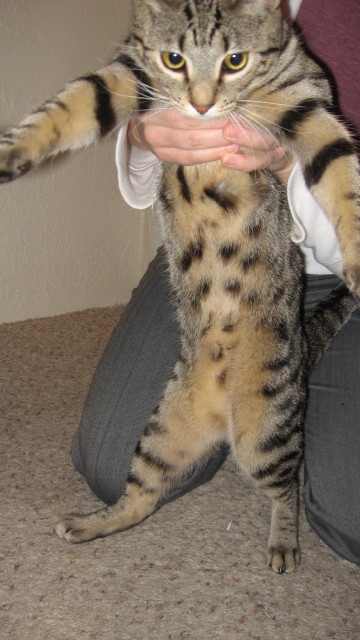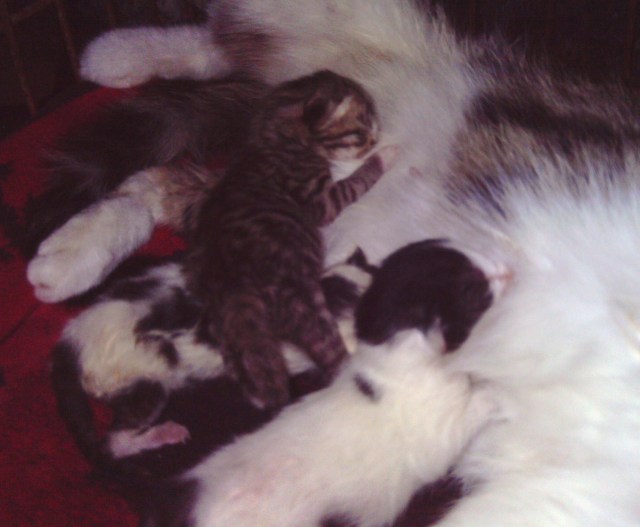QuestionI read another question on this. Unfortunately it didn't really cover the issue or answer.
We have a 5 year old female cat that we adopted at the shelter a little over a year ago. She was spayed, micro-chipped and de-clawed before ever arriving at the shelter.
Each month, she'd act as though she were in heat. Mewing, getting into position, tail twitching and backing up on people. (Its akwerd enough when a dog tries to mount a guest, but when your cat backs up to your guest and starts acting like a three dollar prostitute... What do you say?)
She will also do this to other animals. To our other female, who gets very annoyed with the actions and attention. And to visiting family dogs like my Grandmother's Shitzu...
Around last September... She started Spraying.
I've used deterrent sprays and citrus scents and none deter her. If you chase her off, she runs straight to another wall. I do three rounds around the house trim a day to clean up any markings and get rid of the smell.
She is indoor only. She uses the litter box regularly. We have one other spayed female, who is getting stressed and irritated by the older female's actions.
She has been to the vet, no health problems. Everything is fine.
She is a laid back, affectionate cat for the most part. Except for her "heat" episodes and her spraying.
I'm at a loss... Help?
AnswerD,
I am wondering if your vet would consider checking hormone levels during one of these "heat" episodes. It sounds suspiciously like the vet who spayed this cat may have missed a piece of ovary which could account for the hormonal behaviors that she is exhibiting. This is not terribly common, but it does occasionally happen. I would also suggest that if a urine test has not been done that one be done just to rule out a long standing UTI (urinary tract infection) as this can cause a cat to urinate outside of the box. I am also going to suggest that you keep the spraying kitty confined in an area such as the bathroom which is easy to clean until her behavior starts to improve. I would suggest that you go around all of the walls from approximately 3 feet above the floor and onto the floor about a foot away from the wall to make sure that small droplets of urine have not been missed. I would also suggest that you use what is called an enzymatic cleaner. Enzymatic cleaners are available through most pet stores, but to be honest you can get them slightly cheaper from a janitorial supply store. The way that enzymatic cleaners work is that they contain good bacteria that eat the bad bacteria that causes body fluids to smell bad. The nice thing about that is your cat will not be able to smell previous mistakes and therefore is less likely to repeat them. Just because human noses can't smell something doesn't mean that a cat's nose won't be able to. Back to the isolating the spraying kitty in the bathroom...As I mentioned before, a bathroom has the advantage of being easy to clean. It also is a much smaller space to be looking for kitty surprises. In the bathroom you should be sure that this kitty has food, water, a couple of toys and a litter box. The rule of thumb that I tend to use for multiple cat households is one litter box per cat plus one, I mention this because when kitty comes out of the washroom we don't have a relapse because she feels like there are not enough litter boxes to suit her. Another alternative is to speak with your vet regarding medications that might be able to help in the behavior modification that you are undertaking. Please keep me posted as I am willing to try to help with any issues that may come up during the process of reteaching this cat toilet manners. If you have any further questions or concerns, please do not hesitate to contact me again.

 Cats Fighting
Question
Big Cat
Hello.i have a cat named lucky.he is a
Cats Fighting
Question
Big Cat
Hello.i have a cat named lucky.he is a
 Cat Breed Identification?
Question
Playtime Pretty Girl
Hi there. &n
Cat Breed Identification?
Question
Playtime Pretty Girl
Hi there. &n
 What breed is my cat?
QuestionBoots
QUESTION: Hi Norman, i was hoping
What breed is my cat?
QuestionBoots
QUESTION: Hi Norman, i was hoping
 Labor Stalled?
QuestionQUESTION: Recently a very pregnant cat adopted
Labor Stalled?
QuestionQUESTION: Recently a very pregnant cat adopted
 Please help
Questionmy cat
QUESTION: Hi,
I have a Ragdoll ca
Please help
Questionmy cat
QUESTION: Hi,
I have a Ragdoll ca